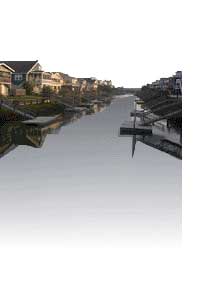|
Dali was slightly colder than Kunming, an approximate
drop of 2 Degrees Celsius. I don’t remember seeing anything really fascinating here, though the town itself looked
more advance.
Early that morning, we visited Er Hai Park. Mangrove
trees were seen along one long stretch of pathway surrounding a lake. Did nothing much, just took a couple of snapshots
and off we went. A quick 10 minutes walk in that park cost about RMB10 per entrance (If I recall correctly).
|
|
|
| Feel the chill in mom's look. |
|
|
Our next stop was Dali Old Town. It used to be a small Bai minority village which turned commercial.
Here they were selling all kinds of handicrafts, clothes and souvenirs.
|
|
|
| At the Entrance of the old town, beautiful. |
|
|
|
| Those who worked were mostly women. |
|
There was this old lady whom we wanted to take picture
with. She was quite bubbly, energetic and turned sooOooo excited when we asked her to post in front of the camera. We waited
a solid 10 minutes just for her to comb her hair and adjust her scarf before snapping. Really "ai sui". I told her
she's the cutest granny we've ever met. She buat tak tau.
|
|
| Should have said woman instead of granny. |
Before visiting the Three Pagodas, we stopped by a marble factory. Nothing really interesting, not for us that is. The whole visitation was monotonous, displays
were exactly similar to those exhibitions we often see in shopping malls here. BUT, the scary toilet experience really made
this place unforgettable. I rather not talk about it.
Mom didn't sleep well the past 4 days, thus dozed off in the bus while the rest of us visited
Chongsheng Santa. This was where the Three Pagodas lie, one kilometer nortwest of Dali.
Next, we went to another JADE shop and lunch was at "duan4 ren4 jiu3 dian4". It used to be the home of
a rich China man. This place was something like what we see in Chinese dramas, where the master lived in one middle
hall while all his mistresses took up the left, right and opposite rooms.
After that was another cultural
performance, portraying traditional custom wedding
ceremony of the Bai. In order for the marriage to be a success, guests were expected to pinch the bride and groom as
a token of well wish. Yup, anywhere they liked.
The Bai minority are also well known for their gracious hospitality. They
have this unique ceremony for visitors, called "three cups of tea". We were given such welcoming service:
The head of the family made the tea, and the youngest served it:
- First cup was made from local bitter leaves - Dreadful medicinal taste.
- Second cup was made from a mixture of walnuts, sugar and cheese. - Sweet.
- Third cup was made from ginger, prickly ash and some Chinese cennamon with honey
- Weird taste, with smell of burnt paper.
This ceremony is a symbol of
life's journey: First cup, Going through all kinds of hardships. Second cup, experiencing the joy of life. And third cup,
recalling both sweet and bitter memories throughout one's life before he/she expires. Basically for the Bai, the tea is a
bond of friendship.
|
|
|
|
| And my forever sporting parents. |
|
At about 2pm, we left for Lijiang. It took about 3 hours to reach. Along the journey, we stopped by one more JADE
outlet. Had dinner and checked into Shinner Hotel, the best throughout this trip.
Day6, GO.
|
